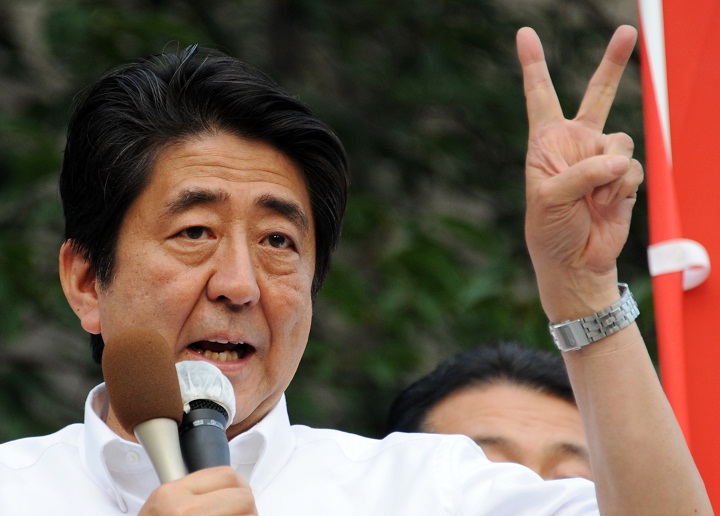TOKYO – Japanese broadcasters projected that Prime Minister Shinzo Abe’s ruling coalition won a majority of seats in the upper house of parliament in elections Sunday, giving it control of both chambers for the first time in six years.

The win is seen as an endorsement of Abe’s economic program, which has helped spark a tentative recovery, and gives him a legislative mandate to pursue difficult economic reforms he has promised to help sustain growth in the long run.
The victory in the elections, where half the seats in the 242-member upper house were up for grabs, could also embolden the hawkish Abe to advance his nationalistic goals, which could further strain testy relations with China and South Korea.

Get daily National news
It is also sweet redemption for Abe, who lost upper house elections in 2007 during his previous stint as prime minister.
Based on exit polls, public broadcaster NHK predicted that Abe’s Liberal Democratic Party and its coalition partner New Komeito won a combined 71 seats, giving them a total of 130 seats in the chamber, more than the 122 needed for a majority.
Official results weren’t expected until early Monday.
Voter turnout was reported to be low, suggesting a lack of public enthusiasm.
Abe says his top priority is to sustain the economic recovery helped along by aggressive monetary and fiscal stimulus since he took office in late December. In the long run, that will require sweeping changes to boost competitiveness and help cope with Japan’s rapidly greying population and bulging national debt.
The Liberal Democrats’ “Abenomics” economic program has borne some fruit, lifting the stock market, boosting business confidence and helping exporters by weakening the yen.
But Abe faces a decision this fall on whether to follow through on raising the sales tax next April from 5 per cent to 8 per cent – a move that many worry will derail the recovery.
- Elon Musk sued by Cards Against Humanity for $20M over trespassing claims
- Canadian tourists to Egypt will be able to get online visas again: Joly
- Trudeau pushes allies to lift long-range weapons limits for Ukraine at UN
- Tropical storm Helene forms in Caribbean, but could hit Florida as major hurricane







Comments